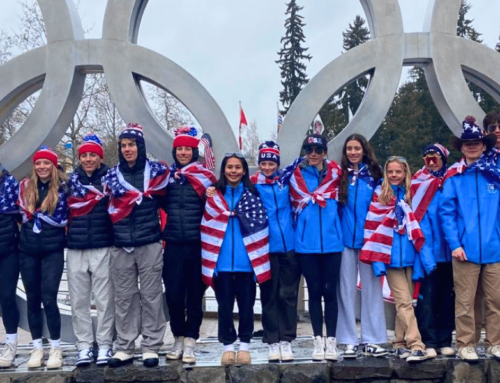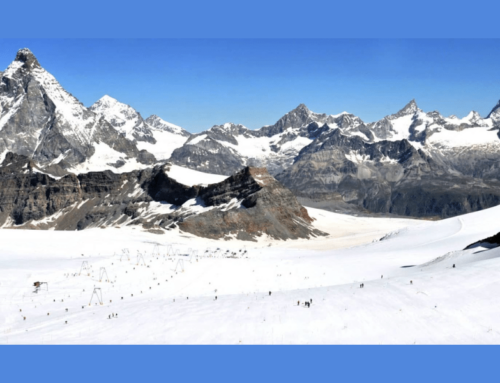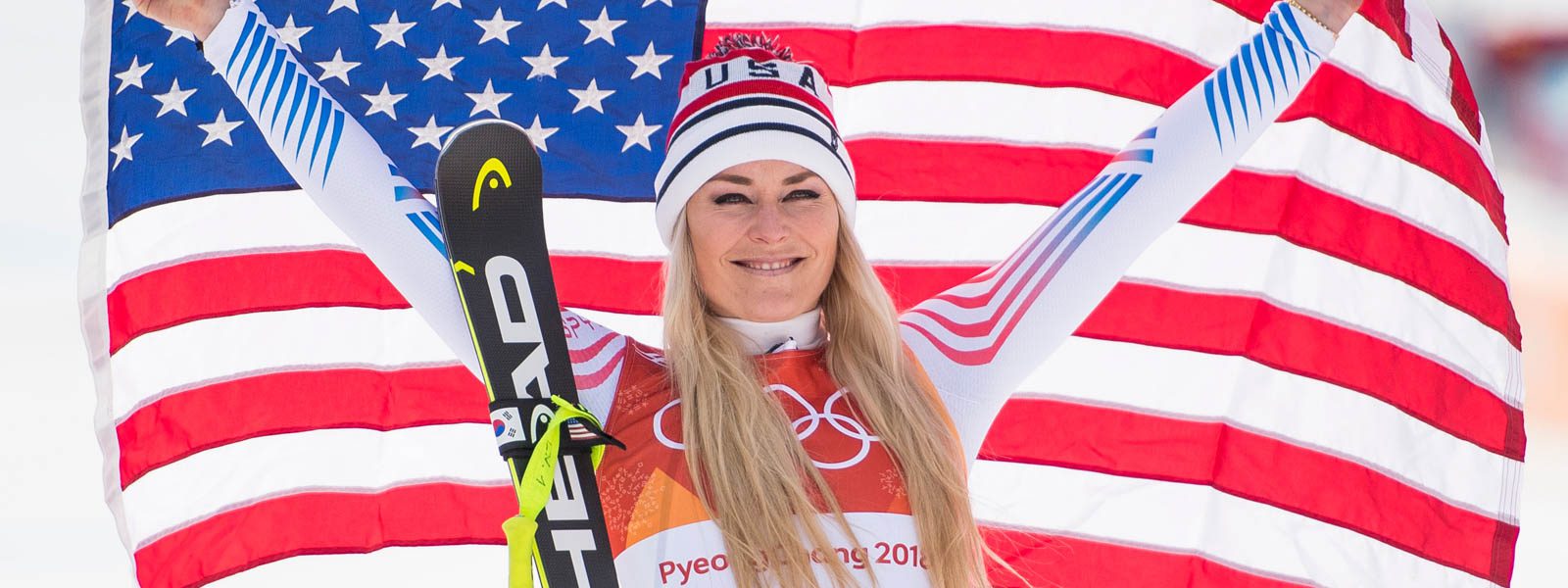10 laws for optimizing your training
It’s that time of year again when you will soon be on snow and putting in the time into your gate training to fine tune your technique, tactics, and speed for the upcoming race season. How you use your training time may very well determine how fast you ski and whether you achieve your ski racing goals this winter.
Training is hugely important because whatever you do in training is what you will do in a race. Another way to look at it is to think of training as the time when you instill physical, technical, tactical, and mental skills and habits that you will use in a race.
Here’s the catch. Depending on the quality of your training, you will either instill good or bad skills and habits. If you practice good skills and habits, they will come out in a race and they will help you ski fast. But, if you practice bad ones, those will come out in a race and they will cause you to ski poorly.
Just so we’re on the same page about what I mean as I discuss training and racing, here are two definitions you should know:
Prime Ski Racing: “Ski racing consistently fast under the most challenging conditions.”
Prime Training: “Maintaining consistently high training quality resulting in optimal preparation for competitive success.”
To help you understand the real value of training, let me introduce you to my 10 Laws of Prime Training:
First Law: Prime ski racing is not achieved on the day you race, but rather in the days, weeks, and months before the race.
Many racers believe that if they’re ready to go on the day of the race, then they are prepared to ski their best. But I have found that success is determined more by what you do in the time leading up to the race. If you’ve put in the time and effort to develop your physical, technical, tactical, and mental skills and habits, you will have the capabilities and the belief to ski your fastest on the day of the race.

Second Law: Athletes should train like they race.
Whenever I give a seminar to racers or coaches, I ask this question: Should you train like you race or should you race like you train? Most say, you should race like you train. Their response is understandable in some ways because if you could race in the positive, relaxed, and focused way that you train, then you would certainly ski well. But I believe that competing like you train is impossible for one simple reason: races matter. Training is easy because it doesn’t matter that much if you make mistakes. But if you ski poorly in races, you definitely do care.
The problem is that many racers train at 60-70% focus and intensity, then expect to be able to jump to 100% in a race and ski their best. Unfortunately, this leap is too great for most racers and they ski poorly. Training like you race means putting as close to the same level of motivation, focus, and intensity into training as you do in a race. It’s probably unrealistic to think that you can train exactly like you race, but if you can get close to it, say 90%, then the last 10% that comes in a race will be an easy step up. Only by training like you race can you race like you train.
Third Law: Preparation is the foundation of all physical, technical, tactical, and mental skills.
There is no magic to acquiring skills. There are no special techniques that enable you to learn faster or better. Developing skills of any sort requires three steps: (1) Awareness of what you’re doing incorrectly and what is the proper execution; (2) Control to engage in the skills correctly; and (3) Repetition to ingrain the new skills. Only with this preparation will you be able to use those skills effectively and with confidence in races.
Fourth Law: Take responsibility for everything that impacts your ski racing performance.
The only way that total preparation can be achieved is if you know every area that influences your ski racing performance. These areas include all of the components of physical, technical, tactical, and mental preparation. If you address every one of these areas consistently in your training, you can be sure that when you get to the race, you will be totally prepared to ski your fastest.
Fifth Law: Ski racing preparation is about the grind.
To be your best, you have to put a lot of time and effort into your training. I call this the grind, which involves having to put hours upon hours of time into training, well beyond the point that it is fun and exciting. If you let these immediate negative aspects of your training override your long-term goals of working hard and putting in the time, your motivation is going to suffer and you’re not going to ski your best in the big races. You must accept the grind because, though it is periodically tiring, painful, and boring, failing to achieve your goals is much worse.
Sixth Law: Patience and persistence are essential to achieving prime ski racing.
Good skills and habits take time to develop and you will experience plateaus and down periods along the path toward your goals. You may become frustrated, impatient, and want to quit. If you let frustration and impatience overwhelm you, you will never achieve prime ski racing. If you understand that progress takes time and that there is no way to hurry progress, you will have the patience to experience prime ski racing. Drawing on that patience, if you persist long enough in the face of setbacks and obstacles, the improvement will come and you will make prime ski racing the rule rather than the exception in your skiing.
Seventh Law: Prime preparation requires clear purpose, prime focus, and prime intensity.
You must have a clear purpose that tells you what you’re doing in training every day. You must consistently maintain focus on your purpose during training. Your body must be physically capable of performing the purpose by being rested, healthy, and at your ideal level of intensity.
Eighth Law: Consistent training leads to consistent race performance.
Consistency is essential for prime ski racing and is one of the most important qualities that put the best racers above the rest. Consistency in ski racing comes from consistency in training. Consistency relates to every aspects of your training and life. In addition to the obvious areas such as conditioning, technique, and tactics, it also pertains to attitude, effort, focus, intensity, emotions, sleep, and diet. Any area that influences your performance must be consistent before you can be consistent in your racing.
Ninth Law: Failure is essential for ski racing success.
I know that sounds contradictory, but you cannot succeed without failing. Failure shows you what is not working. It means that you are moving out of your comfort zone. Failure means you are taking risks and pushing your limits. Failure teaches you how to deal positively with adversity. Only from failure can you find true success.
 Tenth Law: Prime ski racing comes from “one more thing, one more time.”
Tenth Law: Prime ski racing comes from “one more thing, one more time.”
You can assume that most of your competitors are working hard to become the best racers they can be. If you want to defeat them, you must ask yourself, “What can I do to get the edge over them?” Here is a simple rule I learned from Bernhard Russi, the 1972 Olympic downhill champion: “One more thing, one more time.” Anytime that he thought he was done with his training, he would think about what his biggest competitors were doing, and then take one more run, do one more set of weights, or do one more lap on the track. By doing one more thing, one more time, you are doing that little bit extra that will separate you on the day of the race. Note: This law needs to be balanced with the realization that doing too much can lead to burnout.
BONUS – Eleventh Law: Prime preparation is devoted to readying yourself to ski your fastest in Prime Time.
I define Prime Time as racing against the toughest competition, on the most difficult hill, under the most demanding conditions, in the most important race of your life. I’m not interested in your performing well in unimportant races, under ideal conditions, against a field that you know you can defeat; anyone can do that. Your ultimate goal is for you ski your fastest when it really counts.
By following these 11 laws, you set yourself up to ski your fastest in your equivalent of the Olympics or World Championships.





















